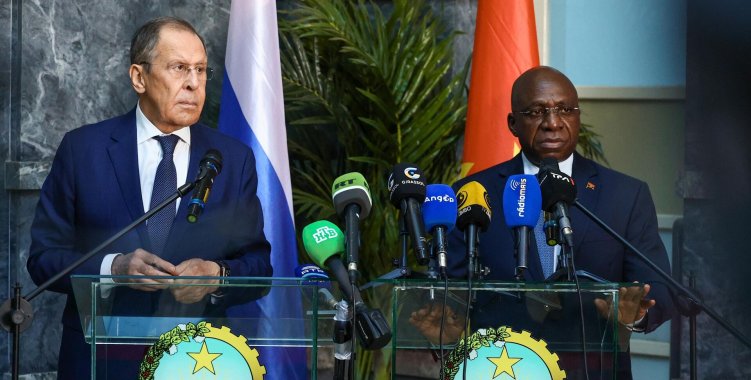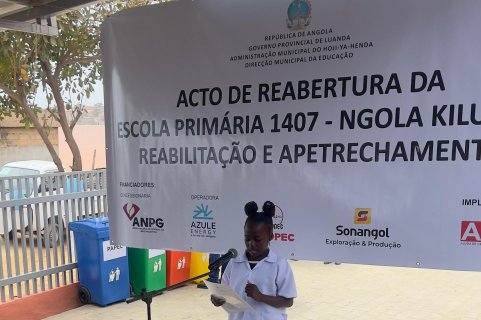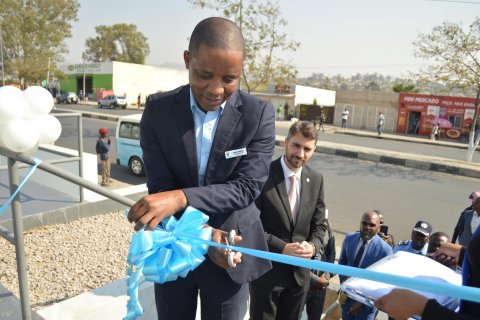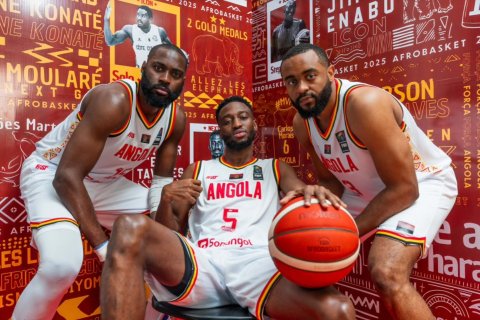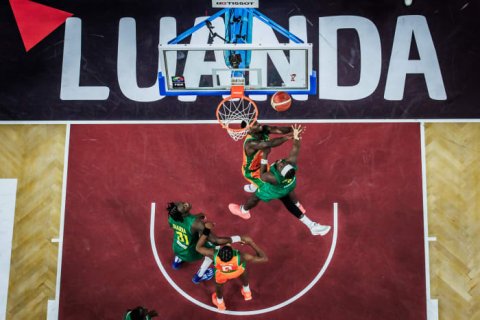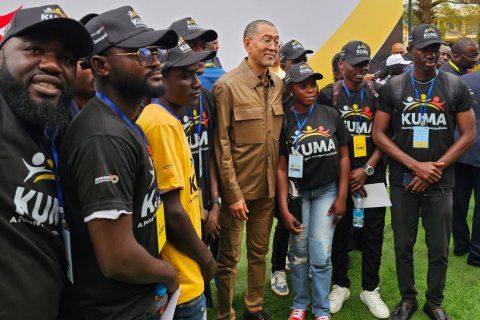At stake, explained the Russian minister in a meeting with his counterpart Téte António, is the fact that Kiev is harming the country's Russian speakers, leading Moscow to have to intervene to protect that part of the population.
"The same conflict based on the will of the population to defend their rights broke out in Ukraine after the unconstitutional coup d'état, after the bloody military coup d'état, the Nazis, declared neo-Nazis, even called for the killing of Russians, Jews, Poles," said Lavrov, referring to the 2014 overthrow of President-elect Viktor Yanukovytch.
At the time, Russia occupied the Crimean peninsula and eastern Ukraine, a conflict that continued in February 2022 with a Russian invasion of the rest of the country, classified by Moscow as a special operation.
Lavrov said that Russia has tried by various means to end this conflict, but despite that, the Kiev regime has chosen to trigger this conflict, banning the Russian language and culture and inviting those associated with it to leave the country.
"The West did not react to these racist and colonialist statements. Furthermore, the US and its allies did everything to cultivate this hatred and turn Ukraine into a parade ground with the aim of placing military bases there and creating a threat to the entire region", said Lavrov.
The "declared objective" of that strategy was "to involve and attract Ukraine to Nato", he said, recalling the support of the then Soviet Union to the Popular Movement for the Liberation of Angola (MPLA, in power) in its war against Portugal and later in the war against the Union for the Total Independence of Angola (UNITA), supported by the United States and the apartheid regime in South Africa.
"The Angolan people are well aware of the price of independence, the price of the free exercise of the traditional rights of each Angolan and, in the same way, Angola participates (now) actively in the effort to establish peace in other countries for security, peace and prosperity in these countries," he said, making a comparison between the two conflicts.
Relations between Moscow and the ruling party in Angola have relations that "go back many years, to the period of the liberation war", highlighting the objective of reaching a strategic partnership between the two countries.
Lavrov also praised Angola's "balanced" position in the United Nations on decisions "that divide the international community, namely resolutions relating to the conflict in Ukraine".
Téte Antonio stressed that, at the regional level, Angola privileges inclusive dialogue, political commitments based on the national interest for the restoration of constitutional order and to guarantee the stability of countries in conflict, always respecting the principle of non-interference in the internal affairs of each state
Angola also defends the way of negotiation and the search for a mutually accepted solution, he continued, highlighting the fight against all the scourges that affect stability and development and striving for respect for international law
The meeting is also "a golden opportunity to have the privilege of listening to your analysis, opinion, on the conflict that today affects the world", said Téte Antonio, referring to the war between Russia and Ukraine and underlining the concern with countless human casualties and destruction of infrastructure
The official stressed that the war constitutes a serious threat to international peace and security and that "all nations of the world are victims in different ways of this conflict", expressing concern with the exponential degradation of the situation on the ground floor.
Faced with this situation that affects two countries to which Angola is linked in history, the head of diplomacy defended the principle of seeking a solution through dialogue, including a cessation of hostilities.
After World War II, the Soviet Union supported various anti-colonial independence movements in Africa and, nowadays, many African countries are equidistant from the war in Ukraine, due to the historical ties existing in the past with Moscow.
In a diplomatic effort to maintain this support, Lavrov is, this week, visiting South Africa, Essuatini, Botswana and Angola.

